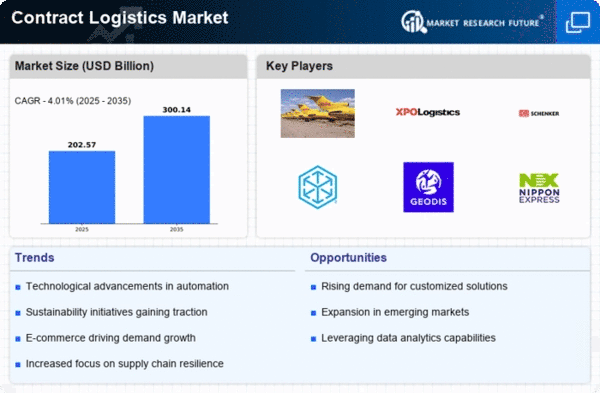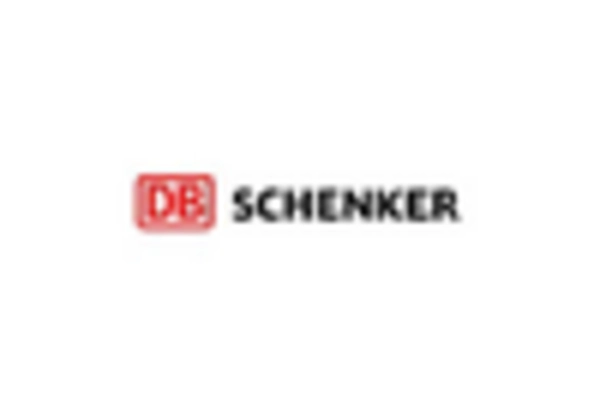Market Share
Contract Logistics Market Share Analysis
A prime feature of the supply chain, the contract logistics market, is the outsourcing of logistics services to third-party suppliers. In this dynamic and competitive industry, Businesses use market share and establishment strategies to stay ahead. Businesses manage to major in serving particular industries, such as healthcare, automotive, or e-commerce. Knowledge in an industry assists suppliers in modifying logistics results to distinctive business obligations and interesting customers pursuing expert services. Embrace advanced technologies such as warehouse management systems, RFID tracking, and automation to increase efficiency and accuracy. Technology integration not only improves business processes but also positions carriers to think ahead and meet the demands of a technology-driven market. Establishment of robust global warehouse and distribution centers to meet increasing global supply chains. The ubiquitous presence enables logistics Businesses to offer complete solutions through international transportation and logistics, appealing to customers with geographically diverse requirements. Customized logistics solutions can be provided to meet each customer's unique needs. Flexibility in service delivery, such as flexible warehousing and scalable transportation solutions, allows shippers to meet the changing needs of their customers. Strategic communications with key stakeholders in the supply chain, including manufacturers, retailers, and transportation providers. Collaborative efforts help streamline the delivery of end-to-end solutions to the entire supply chain and position logistics companies as note partners in customer business success. Integrating sustainable practices into exports, such as environmentally friendly packaging, waste reduction, and energy-efficient transport. Sustainable design contributes to a positive brand image and eco-friendly customers and meets the growing demand for sustainable supply chains and sustainable solutions in the Building a skilled workforce, identifying industry trends and best practices, and investing in ongoing training programs. A knowledgeable and well-trained team improves reliability, service efficiency, and adaptability to changing customer needs. Implement a robust CRM system to improve communication, understand customer requirements, and provide quality service. A strong emphasis on customer satisfaction and relationship building helps in customer retention and positive word of mouth. To stay informed and proactive with changes in compliance with regulations and requirements, especially for international exports. Compliance skills are prime to gaining customer confidence, especially for those working in highly regulated industries.


















Leave a Comment